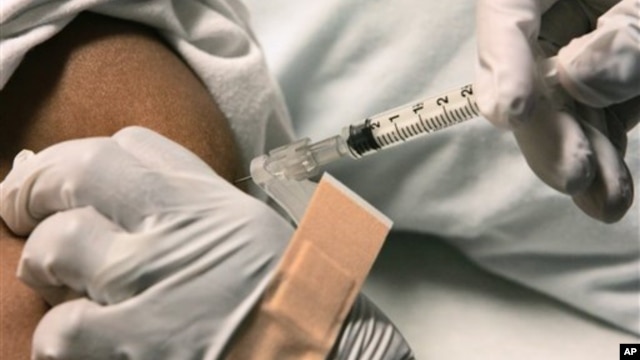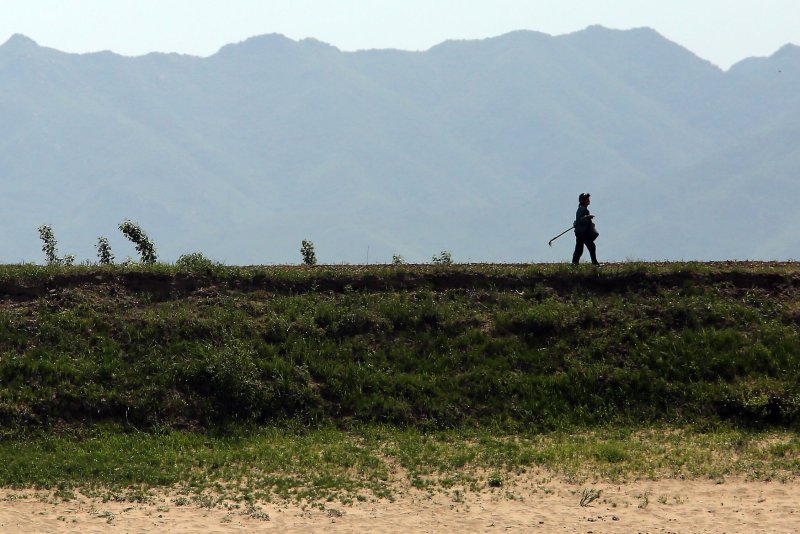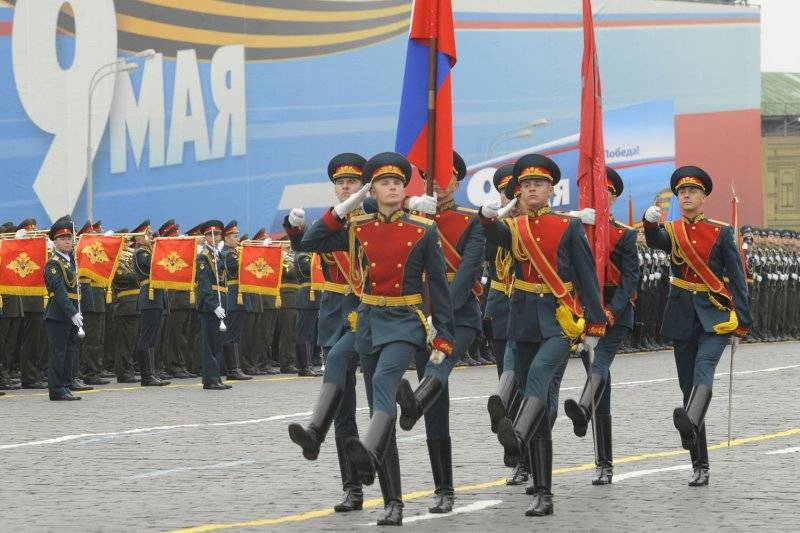Sickle cell anemia is not common but still affecting lots of peoples in the United States and rest of the world. The red blood cells in normal human body making hemoglobin are round and smooth and gliding through small blood vessels. Sickle anemia patient cells are not round, it is like the shape of sickle (from which we use to cut wheat). These cells which looks crescent like get stuck in blood vessels and due to this the blood flow blocks which resulting severe pain in different body parts and sometimes damages the organs too.
Navigation
Install the app
How to install the app on iOS
Follow along with the video below to see how to install our site as a web app on your home screen.

Note: This feature currently requires accessing the site using the built-in Safari browser.
More options
You are using an out of date browser. It may not display this or other websites correctly.
You should upgrade or use an alternative browser.
You should upgrade or use an alternative browser.
Sickle Cell Anemia Pain
- Thread starter sweetload
- Start date
New guidelines for treating sickle cell disease...
Experts Recommend Best Treatments for Sickle Cell Disease
September 11, 2014 — A panel of experts is out with new guidelines for treating sickle cell disease. But not all the recommendations will be affordable for everyone.
Experts Recommend Best Treatments for Sickle Cell Disease
September 11, 2014 — A panel of experts is out with new guidelines for treating sickle cell disease. But not all the recommendations will be affordable for everyone.
Sickle cell disease - or sickle-cell anemia, as it’s sometimes called - is a genetic condition affecting millions around the world. It’s most common in tropical areas including sub-Saharan Africa, Saudi Arabia, and Central and South America. It’s also found in countries like the United States among migrants from those areas or their descendants. The name comes from misshapen and sticky red blood cells which can cause severe pain when they block small blood vessels instead of flowing smoothly.
The new guidelines strongly recommend regular transfusions and a medicine called hydroxyurea. Barbara P. Yawn, MD, co-chair of the expert panel that developed the guidelines, says these treatments can really improve patients’ lives, “and they are just grossly underutilized. There are not nearly as many people using these therapies as there are people who are candidates for these therapies.” Routine transfusions can be out of reach, especially in poor countries. Hydroxyurea, on the other hand, is a relatively inexpensive, generic pill.

A sickle cell patient given an injection for pain relief.
Even more appropriate may be the recommendations to prevent pneumococcal infections, which can be fatal in young children with sickle cell disease. The guidelines recommend vaccination and a daily dose of penicillin for youngsters under age five. “So that’s something that we would like to do. Is that feasible in a developing country? It should be, because penicillin is a generic drug. It is very inexpensive,” said Dr. Yawn in a telephone interview. The guidelines also recommend using strong medicines like morphine to treat the acute pain of a sickle cell crisis.
The sickle cell treatment guidelines are meant for health care professionals, but Barbara Yawn says they’re also valuable for patients and their families to be aware of, to point their doctors to the best practices in treating the disease. The expert panel that issued the sickle cell disease guidelines was organized by the U.S. National Heart, Lung, and Blood Institute, and their report was published in the journal of the American Medical Association, JAMA.
Experts Recommend Best Treatments for Sickle Cell Disease
Kim starvin' his people...
Stunted growth, acute anemia persists in North Korean children, says report
Sept. 18, 2015 - Children in North Korea are three times more likely to be developmentally challenged than in neighboring China and Mongolia.
See also:
Russia expresses 'concern' over North Korea nuclear operations
Sept. 18, 2015 | North Korea and Russia have recently rekindled a traditional alliance, but Pyongyang's actions are drawing Moscow's scrutiny.
Stunted growth, acute anemia persists in North Korean children, says report
Sept. 18, 2015 - Children in North Korea are three times more likely to be developmentally challenged than in neighboring China and Mongolia.
One out of four North Korean children suffer from acute anemia, according to a recent report from the International Food Policy Research Institute in Washington, D.C. The IFPRI's Global Nutrition Report stated the chronic condition persists among North Korean minors and that the rate at which anemia has declined in the population has slowed, Radio Free Asia reported on Friday.
Among children under the age of five, 28 percent are afflicted by stunted growth as a result of malnutrition and 4 percent are underweight. In North Korea, compared to developing countries China and Mongolia, children are three times more likely to be developmentally challenged, according to the report. Despite setbacks, the nutritional status of North Korean children has improved since the last survey in 2009, and the rate at which stunted growth was being eradicated indicated progress, according to Radio Free Asia. Obesity increased slightly, from 1.4 to 1.6 percent between 2010 and 2015 for boys and from 2.8 to 3.1 percent for girls.

A North Korean sheep herder watches his flock near the North Korean city Sinuiju, across the Yalu River from Dandong, China's largest border city with North Korea on May 29, 2015. Malnutrition persists in the country and among children under the age of five, 28 percent are afflicted by stunted growth and 4 percent are underweight, according to a recent report.
The ongoing issue of malnutrition in North Korea indicates people are facing challenges in realizing their access to adequate food, a human right protected under the International Covenant on Economic, Social and Cultural Rights. North Korea, however, denounced South Korea's parliament on Friday for its plans to pass the North Korea Human Rights Act, South Korean outlet CBS No Cut News reported. "The ruse to pass a North Korean human rights law in South Korea's National Assembly will not stop our rising anger," said a North Korean spokesperson for the Korean Democratic Lawyers Organization.
Pyongyang said the bill is a political provocation and a violent affront to North Korea's sovereignty, and that South Korea's parliament gathered data on North Korea human rights based on "slander and false testimonies" from defectors. North Korea has said it guarantees "true freedom and rights" to its people, but defectors in South Korea have refuted such claims.
Stunted growth, acute anemia persists in North Korean children, says report
See also:
Russia expresses 'concern' over North Korea nuclear operations
Sept. 18, 2015 | North Korea and Russia have recently rekindled a traditional alliance, but Pyongyang's actions are drawing Moscow's scrutiny.
Russia's Foreign Ministry expressed concern over North Korea's plans to resume nuclear operations and launch rockets in the first public statement from Moscow since Pyongyang's announcement on Tuesday. Ministry spokeswoman Maria Zakharova said Thursday that since Pyongyang's National Space Development Agency announced plans to launch a rocket to place a satellite into orbit and resume activities at its Yongbyon nuclear facility, Moscow has been "paying attention" and monitoring the situation, Yonhap reported. "Russia expresses its concern regarding North Korea's continued pursuit of rocket launches and nuclear weapons production, activities that have been prohibited by U.N. Security Council resolutions," Zakharova said in translation.

Russian military honor guards march during the Victory Day parade in Moscow, on May 9, 2012. North Korean leader Kim Jong Un declined to attend Moscow’s Victory Day Parade in May, and he has yet to meet with Russian President Vladimir Putin, but Moscow said on Thursday there is “no other alternative” than diplomatic rapprochement with regards to solving the nuclear issue.
Zakharova said Moscow hopes all countries concerned would exercise restraint and responsibility in order to prevent the deterioration of the situation. Zakharova, however, did not mention whether Russia supports more sanctions against North Korea or if additional pressure is needed to persuade Pyongyang to abandon nuclear proliferation. South Korean television network KBS reported Zakaharova said Russia has taken the position that there is "no other alternative" than diplomatic rapprochement with regards to solving the nuclear issue. "That is the only way to stabilize the Korean peninsula," she said.
North Korea and Russia have rekindled a traditional alliance in the past year, and Russia's foreign ministry designated 2015 the "Year of Friendship" with North Korea. In April, however, North Korean leader Kim Jong Un declined to attend Moscow's Victory Day Parade in May, and he has yet to meet with Russian President Vladimir Putin.
Russia expresses 'concern' over North Korea nuclear operations
Last edited:
Similar threads
- Replies
- 62
- Views
- 2K
- Replies
- 109
- Views
- 4K
- Replies
- 12
- Views
- 805
Latest Discussions
- Replies
- 2
- Views
- 26
- Replies
- 251
- Views
- 904
- Replies
- 8
- Views
- 74
- Replies
- 125
- Views
- 571
Forum List
-
-
-
-
-
Political Satire 8037
-
-
-
-
-
-
-
-
-
-
-
-
-
-
-
-
-
-
-
ObamaCare 781
-
-
-
-
-
-
-
-
-
-
-
Member Usernotes 468
-
-
-
-
-
-
-
-
-
-
